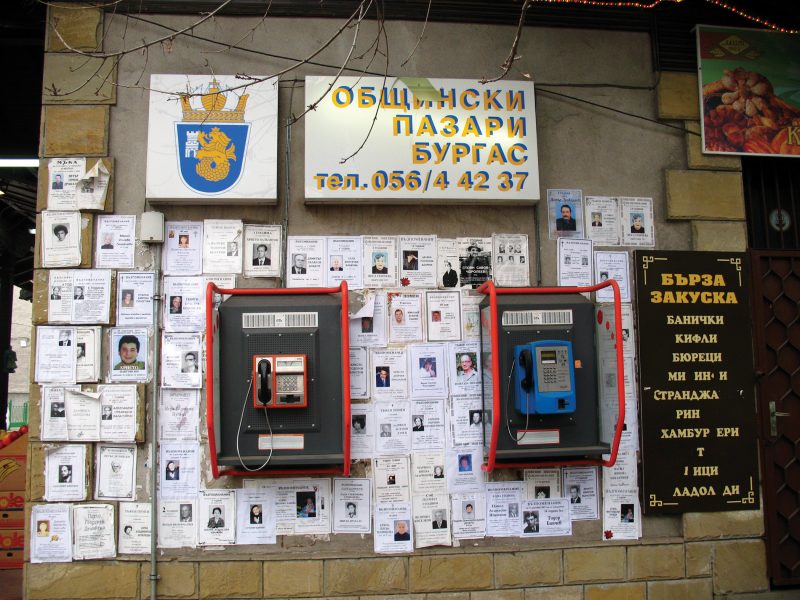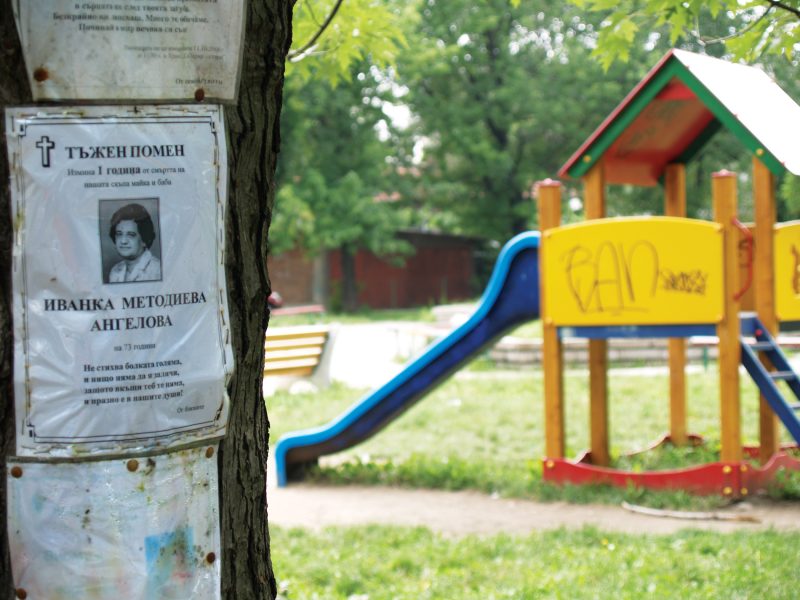I.
I was five when my grandmother Parashkeva first took me to a funeral. She was the mayor of a small village in northern Bulgaria, and one of her responsibilities was to read eulogies for her dead constituents. Priests were no longer welcome back then, with their mumbling promises of a better world (what could be better than life in the People’s Republic of Bulgaria?), so my grandmother became a secular priestess of sorts, a female Pericles. She married people and she buried them.
I remember my first body, laid out in a simple casket propped on two chairs in the garden of the dead man’s house. Dressed in a black suit, he had a burning taper stuck in his lap, wax dripping onto his hands. It was a hot summer, the ripe tomatoes in the vegetable patch glowing bright as embers. A few black-veiled women wailed softly by the coffin, one of them swatting the gathering flies with the loose ends of her headscarf. I was standing at the head of the attending crowd, holding on to my grandmother, mesmerized, while she read out the eulogy she had written earlier that day on stationery paper. Her voice was clear in the heat, formal and martial, the voice of a schoolmarm tackling a patriotic poem. The wailing grew louder as she praised the dead man, his useful life as a mechanic, his good standing in the Communist Party.

An open trailer draped in black hitched to a red farm tractor pulled up next to the house. In one smooth motion the pallbearers shouldered the casket and loaded it onto the flatbed, then helped the veiled women climb up.At an invisible signal, the tractor revved its engine, shot up a plume of exhaust, and jerked forward. Staggering, three gypsy brass players took up a drunken version of Chopin’s funeral march with the mourners following on foot behind them. At every bump in the road, the tractor-trailer jolted and shook out forgotten grains of wheat onto the cracked blacktop.
II.
My first dead man has been resting in the soft, fertile loam of northern Bulgaria for almost twenty-five years now, but each time I go back to my grandmother’s village, his face is still there, on the front door of his former house, on the fragrant lindens, on the old telegraph poles, staring at me from the windows of the general store and the shuttered bakery. He is clean-shaven and officious, youthful looking, his eyes ruefully fixed upon some invisible object in the distance.
This is not a gothic tale. There is nothing particularly ghostlike about...
You have reached your article limit
Sign up for a digital subscription and continue reading all new issues, plus our entire archives, for just $1.50/month.
Already a subscriber? Sign in





